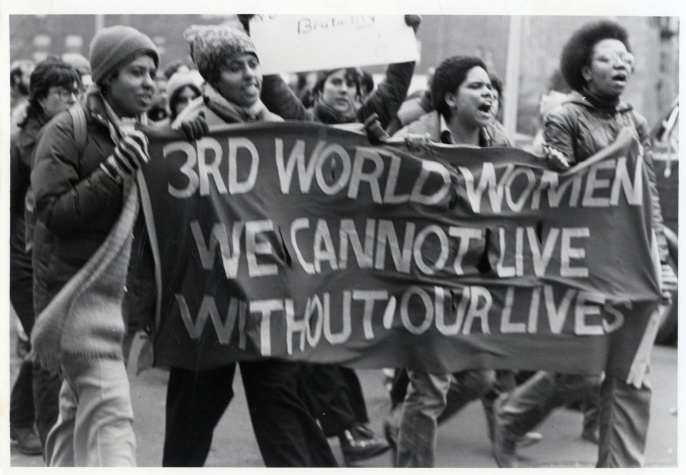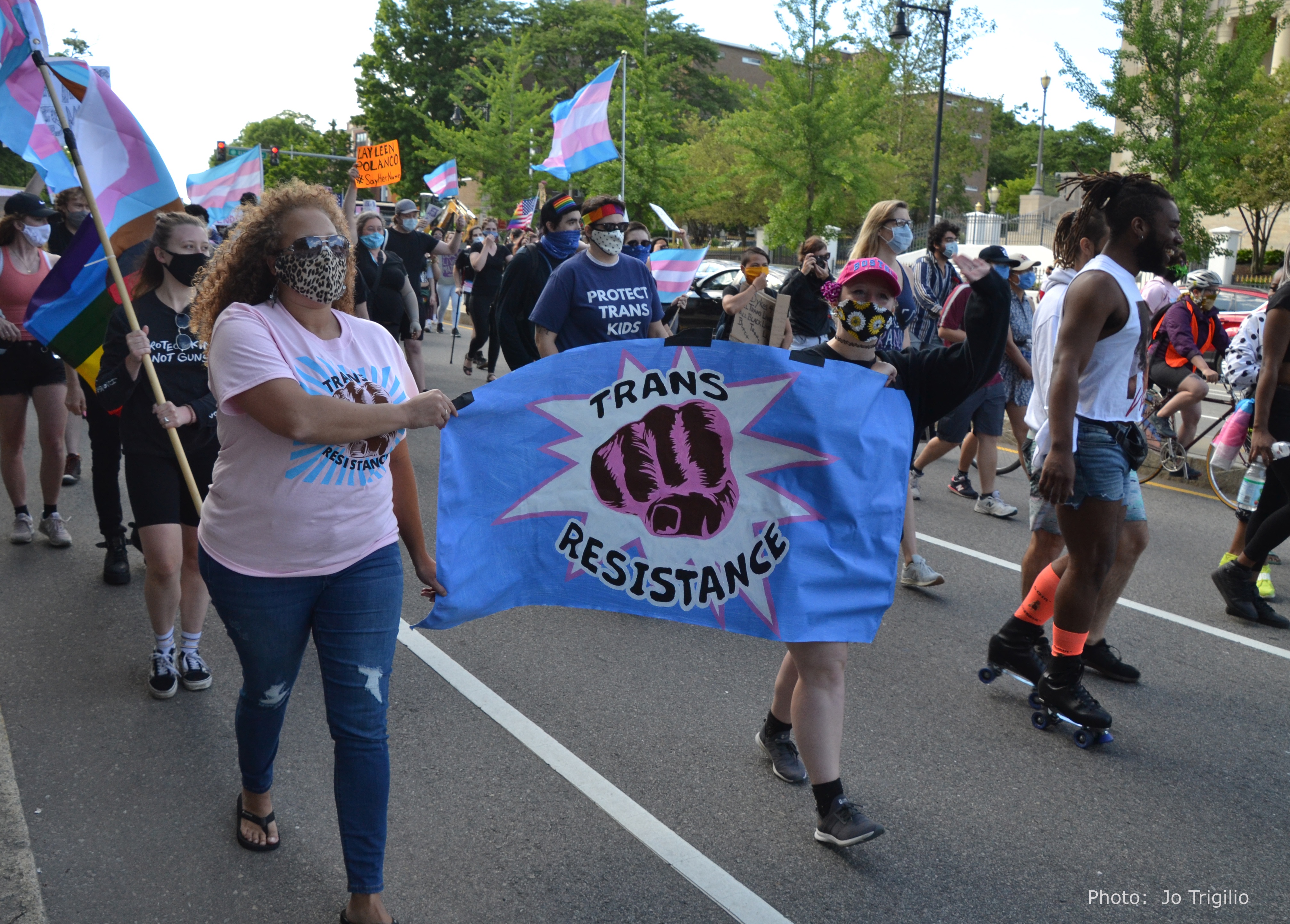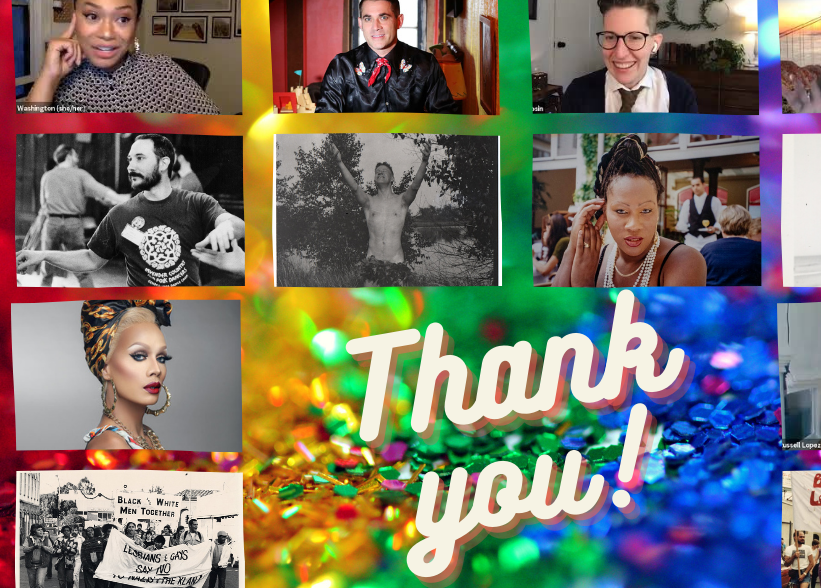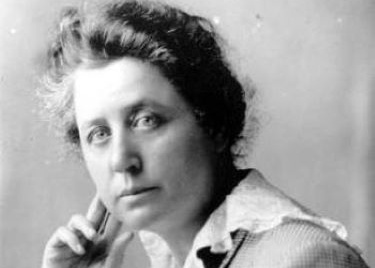Sort by:
Black Lives Matter

Last night in Boston, thousands took to the streets in protest against police brutality. These protests were sparked by the death of George Floyd, a Black man killed by a white police officer with 18 prior complaints filed against him.
In the past weeks, we have learned the names and witnessed the killings of more Black people across the United States, fueled by the racism and white supremacy that are tightly woven into the fabric of our country. Breonna Taylor and Ahmaud Arbery add to an ever-growing list: Atatiana Jefferson, Terrence Coleman, Michael Brown, and more.
Trans people, particularly trans women of color, are targets of this violence. Since January 2020, we have lost at least twelve members of our community: Dustin Parker, Neulisa Luciano Ruiz, Yampi Méndez Arocho, Monika Diamond, Lexi, Johanna Metzger, Serena Angelique Velázquez Ramos, Layla Pelaez Sánchez, Penélope Díaz Ramírez, Nina Pop, Helle Jae O'Regan, and Tony McDade.
Black queer women were key to the founding of Black Lives Matter. Black queer women were key members of the Combahee River Collective, one of the first groups documenting the connection between racial injustice and other social inequities. Black people are essential members of our communities and our histories. Yet LGBTQ+ communities are also spaces of racism and all of us, especially white LGBTQ+ people, must work together to acknowledge and end the white supremacy that leads to so much suffering.
The History Project believes:
- Black Lives Matter
- Police Brutality Must Stop
- Silence is Complicit
As a community archives, it is our mission to document, preserve, and share our stories and our history. The LGBTQ+ community did not gain rights through complacency and inaction.
We honor the stories of the Gay Liberation Front, who encouraged direct action to fight for our rights, not to be moderate, but to fight back against brutality and injustice. We remember that the days of rioting at Stonewall began with Black and brown sisters, transgender women, drag queens, and butch lesbians throwing bricks at the police.
We honor the stories of ACT UP, whose radical approach, unignorable demonstrations, and civil disobedience led to increased treatment and public acknowledgment of the AIDS pandemic. We are heartbroken that the AIDS epidemic continues to ravage minority communities.
We honor the stories of the Lesbian Avengers whose disruptive actions catalyzed attention to issues affecting lesbians, gay women, and others (the Dyke March continues to be their legacy).
At the beginning of Pride Month, a time where we commemorate the riots and protests of the past, we must use our collective power to confront racism and injustice. At this time, we are reaching out to our friends to ask you to support organizations and actions working for racial justice and against unjust policing, such as the following:
- Black Lives Matter Boston: https://blacklivesmatterboston.org/
- The Massachusetts Bail Fund: https://www.massbailfund.org/
- Black and Pink: https://www.blackandpink.org/
- The Freedom Fund: https://www.lgbtqfund.org/
- Transgender Gender-Variant & Intersex Justice Project: http://www.tgijp.org/
- Violence in Boston, Inc: http://violenceinboston.org/
The LGBTQ community has fought for our rights since before Stonewall, and we must continue to fight for all those who experience injustice and brutality. We stand in solidarity with LGBTQ organizations against racial violence.
In the cause,
Joan Ilacqua, Executive Director
Andrew Elder, Board Chair
The History Project Board
Libby Bouvier
Jonathan Chu
Tony Grima
Russell Lopez
Marvin Kabakoff
Neal Kane
Jessica Taylor
Top Related Stories
The History Project supports Trans Resistance MA and Pride 4 the People and calls for transformation at Boston Pride
BOSTON, MA (JUNE 1, 2021) Each June, during Pride Month, the LGBTQ+ community and its allies [...]
BOSTON, MA (JUNE 1, 2021) Each June, during Pride Month, the LGBTQ+ community and its allies [...]
Our Gift To You: The History Project's 2020 Holiday Watch-List
Whether this year's crop of LGBTQ holiday rom-coms is inspiring excitement, disappointment, or even rage (Was [...]
Whether this year's crop of LGBTQ holiday rom-coms is inspiring excitement, disappointment, or even rage (Was [...]
Marie Equi: Her Fight for Women’s Equality
Originally published in Boston Spirit Magazine, Dec. 2016, and on Mark Krone's blog Boston Queer History [...]
Originally published in Boston Spirit Magazine, Dec. 2016, and on Mark Krone's blog Boston Queer History [...]


